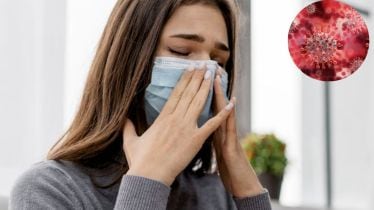India is once again seeing a rise in COVID-19 cases, with active infections reaching 5,364 on June 6, up from 4,866 just a day earlier. The increase of nearly 500 cases in 24 hours has raised concern, especially as some states show a sharp surge. Kerala continues to report the highest number of active cases at 1,487, followed by Delhi, Maharashtra, Gujarat, and West Bengal, where cases have crossed the 500 mark. On June 6, four new deaths were reported—two in Karnataka, one in Kerala, and one in Punjab. Maharashtra, however, remains the state with the highest number of overall COVID-related deaths so far.
Even though many people think COVID-19 is now like the seasonal flu, experts warn that it’s still much more serious. “COVID-19 is not just another flu,” says Dr. Laxman Jessani, Consultant of Infectious Diseases at Apollo Hospitals, Navi Mumbai. “People don’t realise that while both are viral infections, COVID-19 can lead to more severe illness, complications, and even long-term health issues.”
Dr. Jessani explains that COVID-19, caused by the SARS-CoV-2 virus, can affect people differently. It can be hazardous for those with diabetes, heart problems, high blood pressure, and other health conditions. Unlike the flu, COVID-19 can trigger a strong immune reaction called a cytokine storm, which can lead to organ failure in some cases.
Another major concern is Long COVID-19, which happens when symptoms continue long after the infection is gone. “Even young, healthy people who had only mild symptoms are now reporting long-term problems like fatigue, brain fog, sleep troubles, shortness of breath, and anxiety,” Dr. Jessani says. “This shows us that COVID-19 can have lasting effects on anyone,” he added.
Researchers are still studying Long COVID-19, but they believe it may be caused by the virus staying in the body, autoimmune reactions, or damage to small blood vessels.
Risk of reinfection
There is also the risk of reinfection. Some people have been infected more than once, sometimes with more serious symptoms the second time. “New variants can escape the body’s immune defence. This means even if you’ve had COVID-19 or the vaccine, you’re not fully protected,” says Dr. Jessani. “That’s why staying careful and getting vaccinated is still very important,” he further added.
Besides treatment and vaccines, nutrition also plays a role in recovery. “There’s no specific food that cures COVID-19,” says Dr. Jessani, “but eating well helps your body heal. Foods rich in protein, vitamin C, vitamin D, zinc, and omega-3 fatty acids help the immune system. Fermented foods, whole grains, and green vegetables are also helpful.”
As cases rise again, experts are urging people to take COVID-19 seriously. The virus is not gone, and its effects can last far longer than expected. “We need to stay aware. COVID-19 is not over, and recovery takes time,” Dr. Jessani warns. Staying updated with vaccinations, maintaining a healthy lifestyle, and watching out for lingering symptoms are essential steps in protecting yourself.
